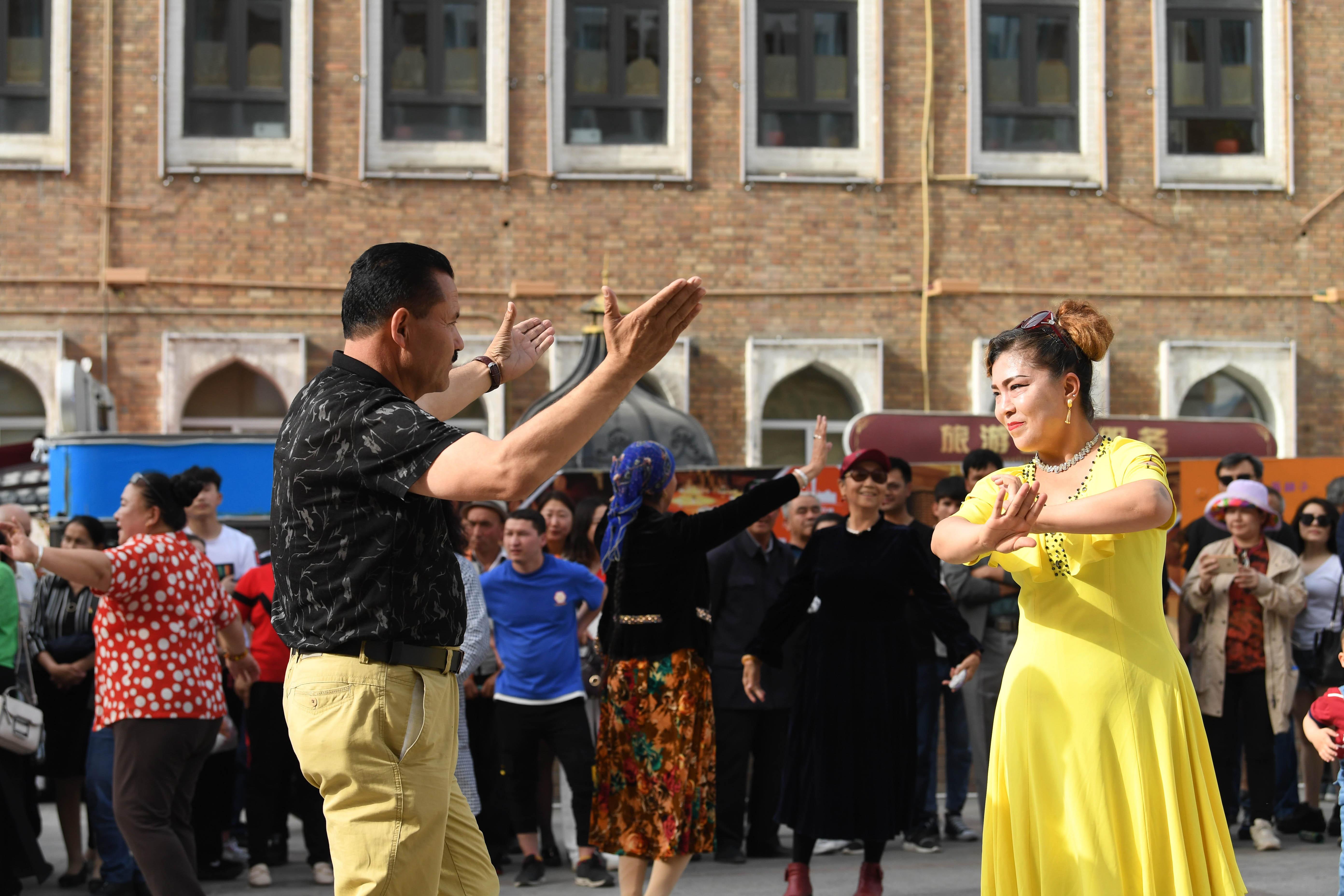
Performers dance at the grand bazaar in Urumqi, northwest China's Xinjiang Uygur Autonomous Region, January 23, 2023. [Photo/Xinhua]
Editor's note: CGTN's First Voice provides instant commentary on breaking stories. The column clarifies emerging issues and better defines the news agenda, offering a Chinese perspective on the latest global events.
Again, the U.S. has played the Xinjiang card to suffocate China's growth. U.S. Department of Homeland Security announced on Tuesday to add three more Chinese firms to its Uygur Forced Labor Prevention Act (UFLPA) Entity List, bringing the total number to 27. "We do not tolerate companies that used forced labor, that abuse the human rights of individuals in order to make a profit," Secretary of Homeland Security Alejandro Mayorkas said in the statement.
"Forced labor" in China's Xinjiang Uygur Autonomous Region is a pure lie. Contrary to Western allegations, the rights of people of all ethnic backgrounds are well protected in Xinjiang. Local government has been dedicated to expanding employment channels, providing placement services, and creating more jobs in recent years – all in an attempt to ensure workers can choose occupations of their volition. From 2014 to 2019, the total number of people employed in Xinjiang rose from 11.35 million to 13.3 million, an increase of 17.2 percent.
Accusing China of "crimes against humanity" in Xinjiang, Washington has never provided any solid evidence. Its repeated smearing of China is part of efforts to rip Xinjiang from the global supply chain and thus suffocate the growth of China, a country Washington deemed as a rival. Since assuming office, the Biden administration has been using every possible means to strangle China's development: Introducing the UFLPA to block products from the country's cotton textile and photovoltaic industries, limiting investments in Chinese high-end technology firms, and slapping trade restrictions on Chinese entities, etc. under the guise of "national security."
Washington has been adept at fabricating lies, as long as it can beleaguer China. It is worth noting that it is the same anti-Beijing hawks behind different types of China-targeted legislation. U.S. Senator Marco Rubio, for instance, has been leading the Republican push for more aggressive policies on the world's second-largest economy. As a strong voice against China, Rubio proposed the UFLPA and is also behind the Hong Kong Human Rights and Democracy Act. In the meantime, Rubio introduced the Stopping Genetic Monitoring by China Act in July, aiming to "stop China's use of genetic material for human rights abuses by cutting off the supply of American genetic technology."

People dance outside the Xinjiang International Grand Bazaar in Urumqi, northwest China's Xinjiang Uygur Autonomous Region, May 22, 2019. [Photo/Xinhua]
Rubio-like politicians' anti-China fever has reached a hysteric level. Accusing China of "human rights abuses," Rubio-like politicians have no knowledge of the real situations in Xinjiang and Hong Kong and are even unlikely to understand the genetic technology. Their purpose is to demonstrate their political presence by acting hawkish on China. How to manipulate the discourse on human rights conditions for maximized benefits is what Rubio-like politicians care about the most.
With the 2024 election approaching, U.S. politics will see anti-China endeavors reaching a new height. After all, against the backdrop of a divided American society, badmouthing China has become an issue of political correctness in the U.S. and an easy tool to unite American politicians.
With poor human rights records, the U.S. has no right to point the finger at China. The U.S.'s crimes against Native Americans are well-documented. In addition, no fundamental solution has been proposed so far to address racism, police abuse, gender inequality, and gun violence, to name but a few. The U.S. should put more efforts in solving domestic issues, rather than stirring up troubles for China.

 中文
中文



